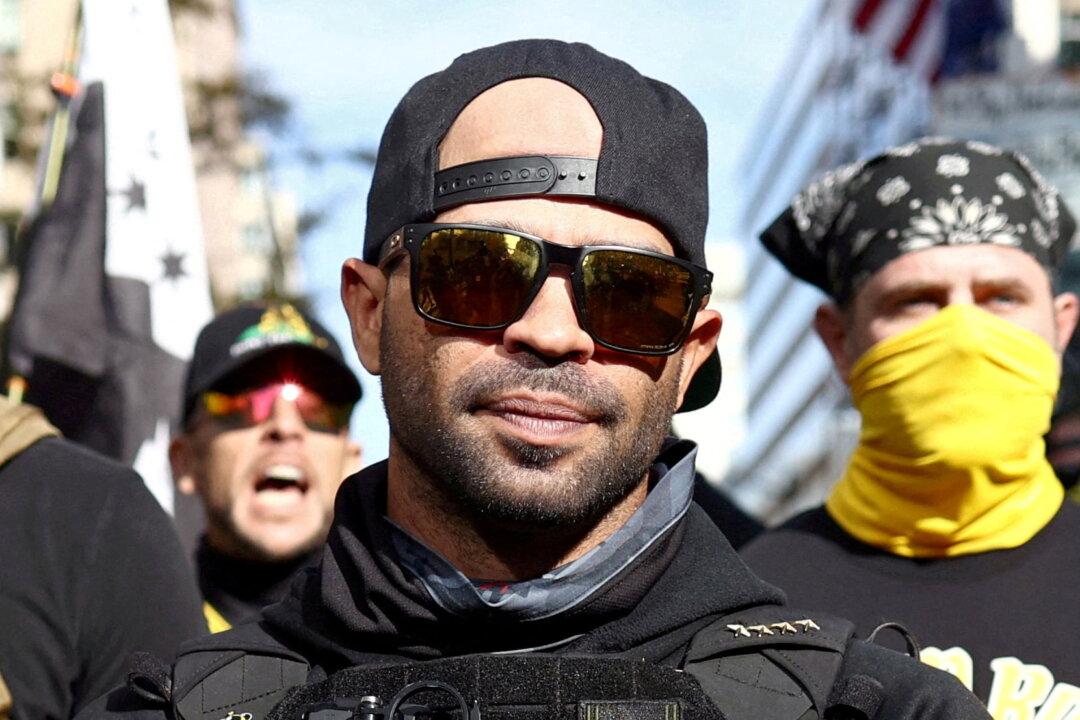The former leader of the Proud Boys and two members of the group pleaded not guilty on June 9 to seditious conspiracy charges that were filed against them earlier in the week in connection with their alleged roles in storming the U.S. Capitol on Jan. 6, 2021.
The not-guilty pleas by Tarrio and co-defendants Joseph Biggs and Dominic Pezzola came during a virtual court hearing in Washington, just hours before the Democrat-led U.S. House Select Committee investigating the Capitol breach held a public hearing.





